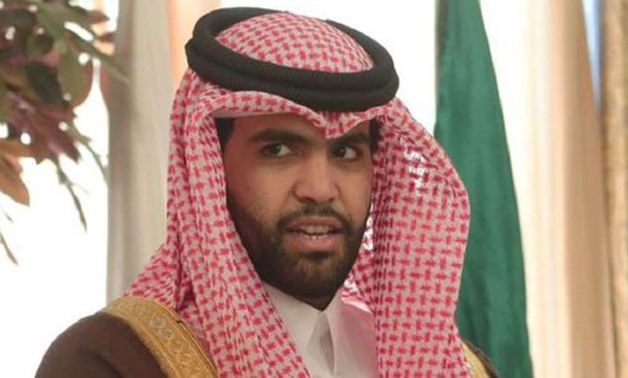
Sheikh Sultan bin Suhaim al-Thani - press photo
CAIRO – 17 September 2018: Qatari opposition leader Sheikh Sultan bin Suhaim al-Thani Sunday criticized Emir of Qatar Sheikh Tamim bin Hamad al Thani’s mouthing of human rights, pointing out that the Qatari ruler has threatened his citizens who performed Hajj (pilgrimage) to be dismissed from their government jobs.
Bin Suhaim’s remarks came following Qatari government’s call on the United Nations Human Rights Council last week to take active and direct measures to deal with “the violations” made by the boycotting countries against Qatar.
This came during the speech of Deputy Permanent Representative of Qatar to the UN in Geneva, Abdullah al-Nuaimi, which took place at an interactive dialogue with the Special Rapporteur concerned with the negative repercussions of coercive measures on human rights, as part of the 39th session of the Human Rights Council.
In response, Obaid Salem Al Zaabi, Permanent Representative of the UAE at the United Nations, UN, in Geneva, delivered a statement on behalf of the UAE, Saudi Arabia, Bahrain and Egypt, before the UN Human Rights Council, as part of the right of reply to the allegations stated in the Qatari statement during the 39th regular session of the council in regards to the debate of the oral briefing of the United Nations High Commissioner for Human Rights.
"We reaffirm that the boycotting measures taken by the quartet against the Qatari regime fall within the context of exercising their sovereign rights to protect their national security from Qatari irresponsible policies which aimed to destabilise security and stability in our states. These measures are not a blockade in any way as Doha claimed.
The quartet has repeatedly affirmed these measures, which aim to protect our security and peoples, will be lifted once the Qatari government stops supporting and funding terrorism and responds to our concerns that were repeatedly announced by our leaders for the sake of protecting stability in the region. The Qatari side must show a sign of good faith to open a responsible dialogue with our states under the Kuwaiti mediation.
We reiterate our states' commitment and readiness to show positive cooperation with the Kuwaiti mediation to end this political crisis away from Doha's tireless attempts to take it from the regional to the international context."
Bin Suhaim wrote via Twitter: "Misfortunes ironically invite a smile. They talk about human rights as if they did not expel a whole tribe from their homeland; as if they did not prevent their citizens from Hajj.”
Bin Suhaim, a son of the first-ever foreign affairs minister of Doha, has boycotted the Qatari regime since the outbreak of the Gulf crisis in June. In September 2017, he released a televised speech where he criticized the Qatari leadership’s position towards terror groups in the region.

Emir of Qatar Sheikh Tamim bin Hamad al Than
Meanwhile, Sheikh Tamim has stripped the nationality of some Qatari tribal leaders and frozen the assets of others, including Sheikh Sultan; Sheikh Talib bin Mohamed Bin Lahoum Bin Sherim, leader of Al-Murra tribe; and Sheikh Abdullah bin Ali Al-Thani, a member of the Qatari royal family.
Qatari opposition members have taken further steps to voice their concerns and show their refusal of the Qatari regime’s policies with its neighboring Arab countries. Opposing voices to Qatari regime have even grown at home.
About a year ago, Qatar was hit by its biggest diplomatic crisis after multiple Arab nations, including Egypt, Saudi Arabia, the UAE and Bahrain cut ties with Qatar, accusing it of destabilizing the region with its support for Islamist groups.
The Arab quartet halted all land, air and sea traffic with Qatar, and withdrew their diplomats and ambassadors from the Qatari peninsula. The Arab quartet issued 13 demands to Doha – then shortened to six principles - including closing Al Jazeera television, curbing relations with Iran and shutting down a Turkish military base.
The four Arab countries severed relations with Doha over what they say was its close links to Iran, which has been accused of interfering in Arab countries’ affairs and being behind terrorist plots. Doha restored full diplomatic relations with Tehran amid the crisis.
One major disagreement between Qatar and its neighbors has been the former’s support for the Muslim Brotherhood, which has been outlawed as a terrorist group by the boycotting countries.
Since the eruption of the crisis, Qatar showed no intention of solving the strife. However, Qatar placed several people and entities on its terrorism list in March, including several Qatari nationals already blacklisted by the Arab quartet that accused Doha of supporting militants. Qatar’s issuance of a terror list of 19 individuals and eight entities has done little to impress decision-makers in the four Arab countries.

Comments
Leave a Comment